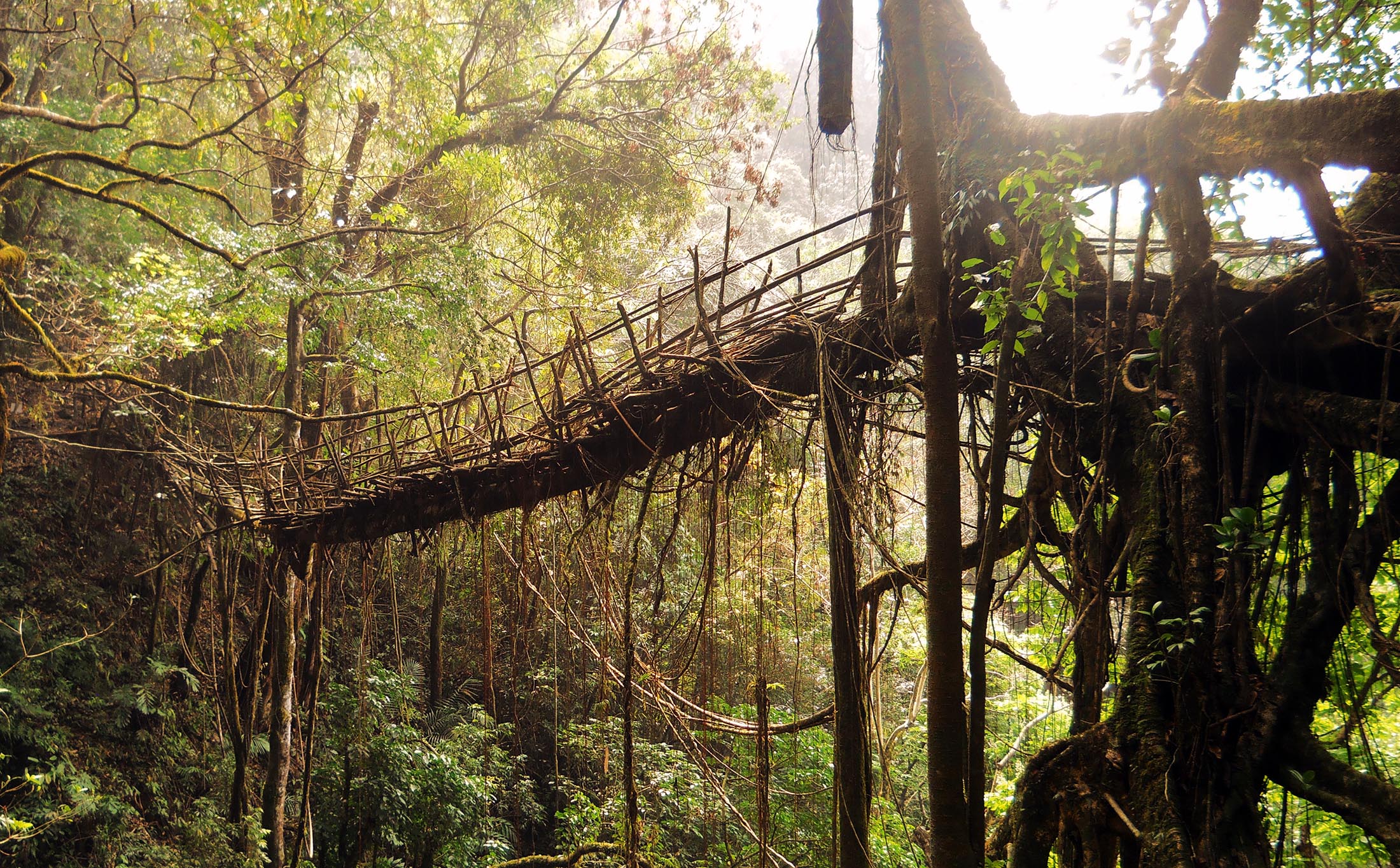Tropical rainforest in Mexico. Photo: Reed Rickert
Xinatli is a museum for art and ecological transitions exploring the possibility of a coexistence in the 21st century.
The name of the research museum, Xinatli, is based on the term Xinachtli from the Nahua language and describes the moment in which a seed germinates, growing into its life-giving form. The phrase symbolizes creation and honors the potential for metamorphosis. What is a seed other than light and earth transformed through relationship?
Architecture by Estudio Juiñi and Studio Viktor Sørless. Renders by bloomimages. CC-BY-SA
01 Design
A Climate Change In The Mind
Xinatli is an artistic initiative working for greater equity in art and ecology around the construction of a museum. The first designs of Xinatli include a newly arranged stepped pyramid housing exhibition areas, along with art pavilions and a terrestrial institute run by scientists.
Each of the complex’s facilities is designed to learn from the pluriverse of life within biodiversity and human communities and carry this knowledge forward in art and collective research.
Xinatli is grounded in the decision to contribute to an urgent climate change within the mind, using art and aesthetic perception, an ecologically oriented way of building, and a cultural engagement of all species to help preserve the permanence of all life on our planet.
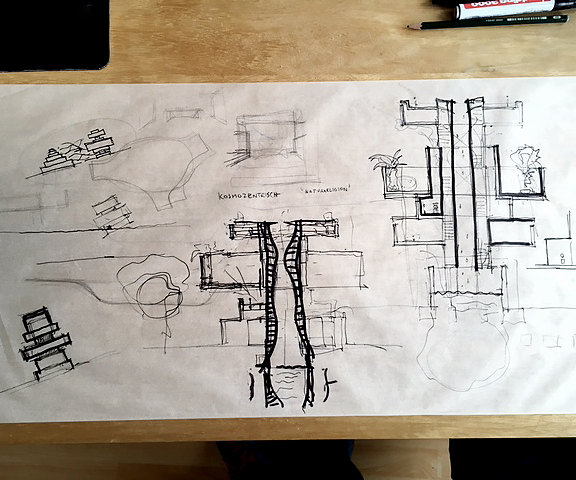
Architecture by Estudio Juiñi and Studio Viktor Sørless, 2017. Renders by bloomimages. CC-BY-SA
“Until now, museums have usually been a space where power is put on display. A new kind of museum should not be a showcase for supremacy but instead a place that advocates for greater equity: in ecology, in art and in society.”

Fernanda Raíz, a founder of Xinatli
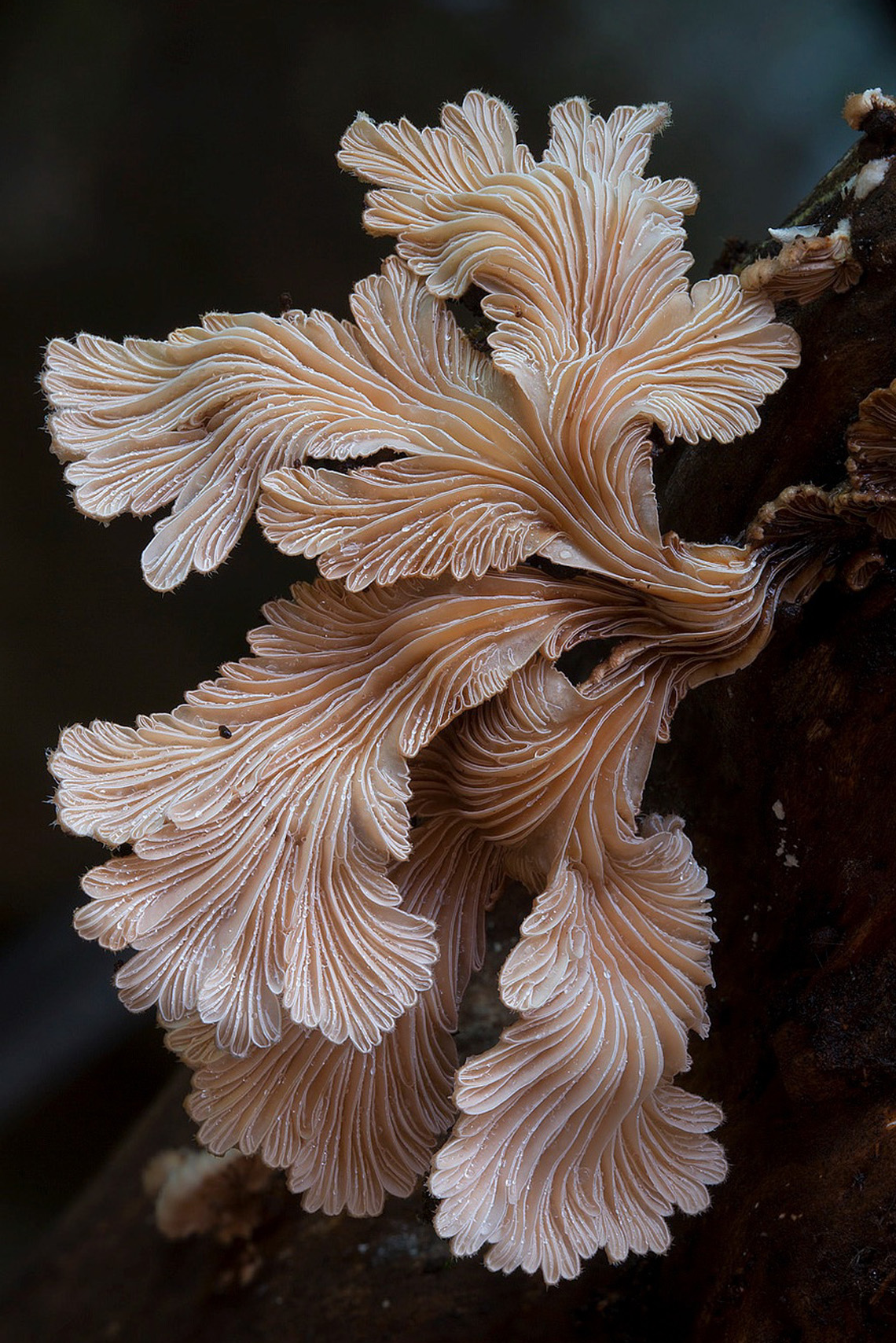
Entangled Life
Every living being exists because all others exist. Dedicated to the dignity of all living things and beings and their entanglement with one another, Xinatli intends to hint to alternatives, provide a powerful counterweight to the exhaustion of nature as a resource and help co-create a world that accommodates many worlds.
Alongside the promotion of creative processes, the museum focuses on thinking-feeling with the Earth, forming kinship with plants and fungi, and examining nature as a legal subject, as proposed by the constitutions of Bolivia and Ecuador.
Ecological action without decolonized thought is just gardening. Xinatli aims to break away from current processes of alienation, racism and anthropocentricism so that an emancipation toward all living beings becomes possible.
The Land Is A Sacred Entity
A 90-hectare area of cleared forest, previously affected by illegal logging, has been selected as the ubicacion and will be reforested over the coming years.
Testamentary provisions provide for a transitional use of the land, which after a generation will be returned to the Earth as one entity, protected by environmentalists and local communities who will become its sole caretakers and stewards.

Architecture by Estudio Juiñi and Studio Viktor Sørless, 2021. Renders by bloomimages. CC-BY-SA

Architecture by Estudio Juiñi and Studio Viktor Sørless, 2019. Renders by bloomimages. CC-BY-SA
Reimagining The Stepped Pyramid
The first designs envision a stepped pyramid made of timber, carrizo and earth. Civilisations have been using earth as a building material from the beginning of time in all parts of the world; it’s there at our feet, in the soil, as humus, in essence as a binder for a more-than-humane way of building. Earth can be reintroduced into the cycles of nature and is ecologically sound. Meanwhile, concrete is one of the most destructive building materials.
The stepped pyramid is also a part of Mesoamerican culture – and at the same time, it could be interpreted as a symbol of a class society, the split between the rich at the top and the poor at the bottom. The Mexican writer Elena Poniatowska called for depyramidization, the dissolution of classes. Could the path to a different society be lead through a critique of the pyramid, the pyramid society? The design of Xinatli aims to dissolve hierarchies. The widest layer of the step pyramid is raised from its base to the middle of the building – to the same level as the crowns of the tallest trees, symbolically bringing people eye to eye with nature.
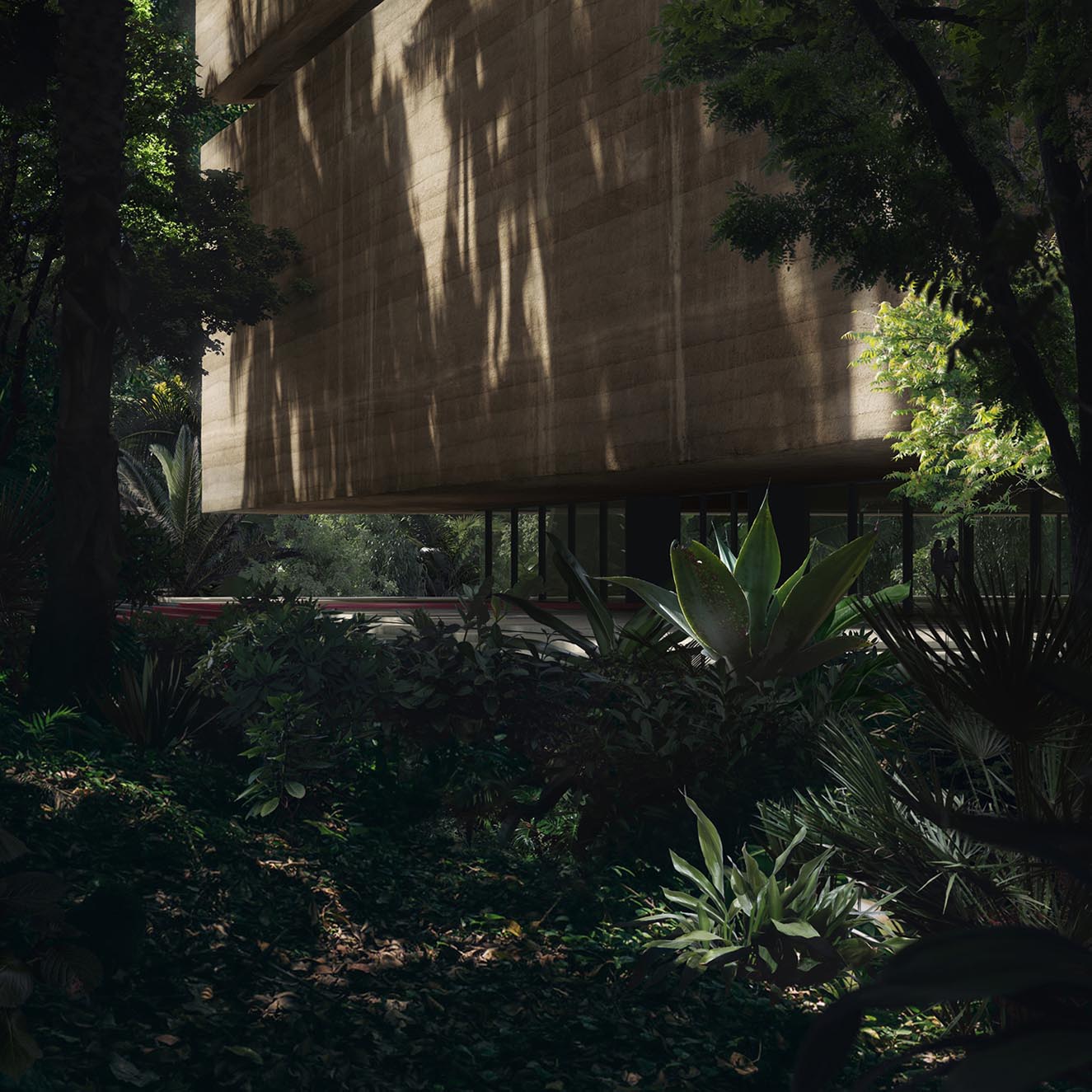
Architecture by Estudio Juiñi and Studio Viktor Sørless. Renders by bloomimages. CC-BY-SA
02 Art
A More Pluriversal Understanding Of Art
Artistically, Xinatli intends to promote positions, especially artworks that address the threatening finiteness of our planet, create ecological awareness, or fruitfully engage with the relationships between humans, animals, and plants.
Respecting the validity of artistic production from all parts of the world requires recognition and respectful practice: Xinatli advocates for the restitution of art and cultural artifacts from colonial contexts.
03 Ecology
An Endearment To All Species
A more compassionate relationship with the world is possible. A world in which we no longer live against earth, but as part of it. In order to arrive at this destination, a less self-centered and more earth-centered world view is needed.
Xinatli wants to use the attention around the project to create awareness for crucial discourses and cultivate a growing number of collective platforms for human and non-human beings who and which a vision of life in an infinitely entangled world.
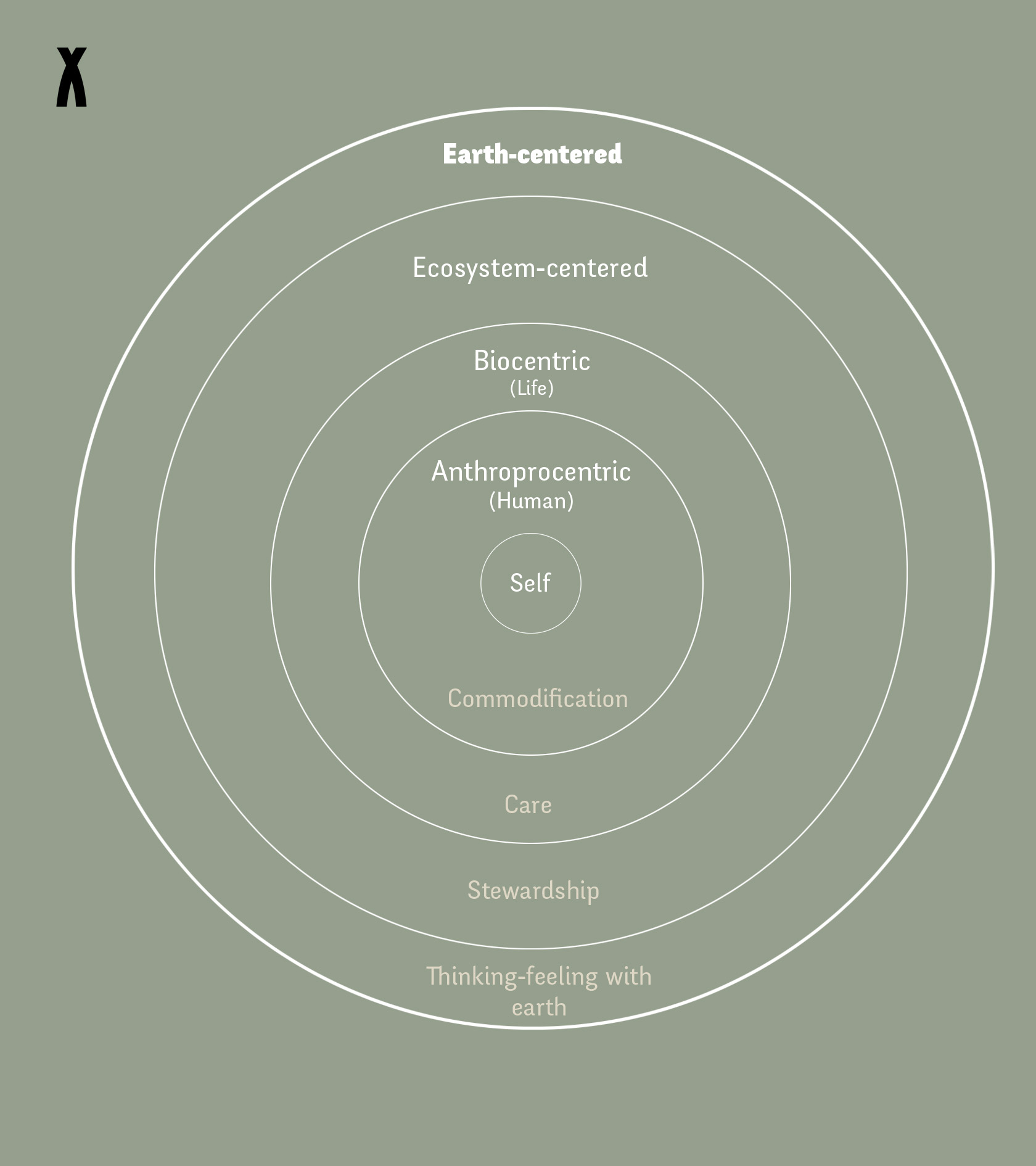
From a self-centered world view to earth-centered world view.
04 Pluriversos
Original essays, scientific rigor, experimental narratives: Xinatli "Pluriversos" aims to present a growing number of perspectives on climate change.
Published May. 14, 2021
BEYOND WESTERN DUALISMS
Climate Change Through Sensitivity
Western rational thinking prevents a compassionate relationship with the world. Conversely, the Global North could learn from the wisdom traditions of pueblos originarios to form an ecology of reciprocity. ~ read more
Published Jan. 05, 2022
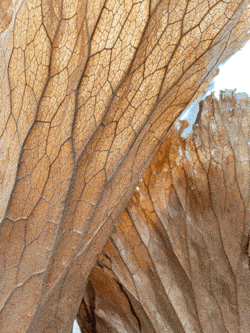
PATENTENTED LIFE
The Harm Of Biopiracy
Biopiracy refers to the corporate appropriation of life (plants, animals and their components) with the help of intellectual property rights. It is a situation in which mostly the knowledge of pueblos originarios is used by others for profit, without permission from and with little or no compensation or recognition. An upcoming reader why we have to stop patenting life and the knowledge of its use.
Will be published in May 2024
Next Steps.
2021
~ First visualizations of Xinatli
2022
~ Setting up a non-profit organization
2023 - 2024
~ Setting up a non-profit organization
- Funding of the first Mexican artists

xinatli – museo de investigación artística
xinatli is an artist-led initiative that seeks to spark new discourses, and ultimately build plattforms that advocate for greater ecological and social equity.
general information
info@xinatli.org
media enquiries
communicacion@xinatli.org
funding & cooperations
proyectos@xinatli.org
this is an artist initiative. we use no cookies nor tracking.
mixed media
for project descriptions, sketches, images, press releases. » see more



